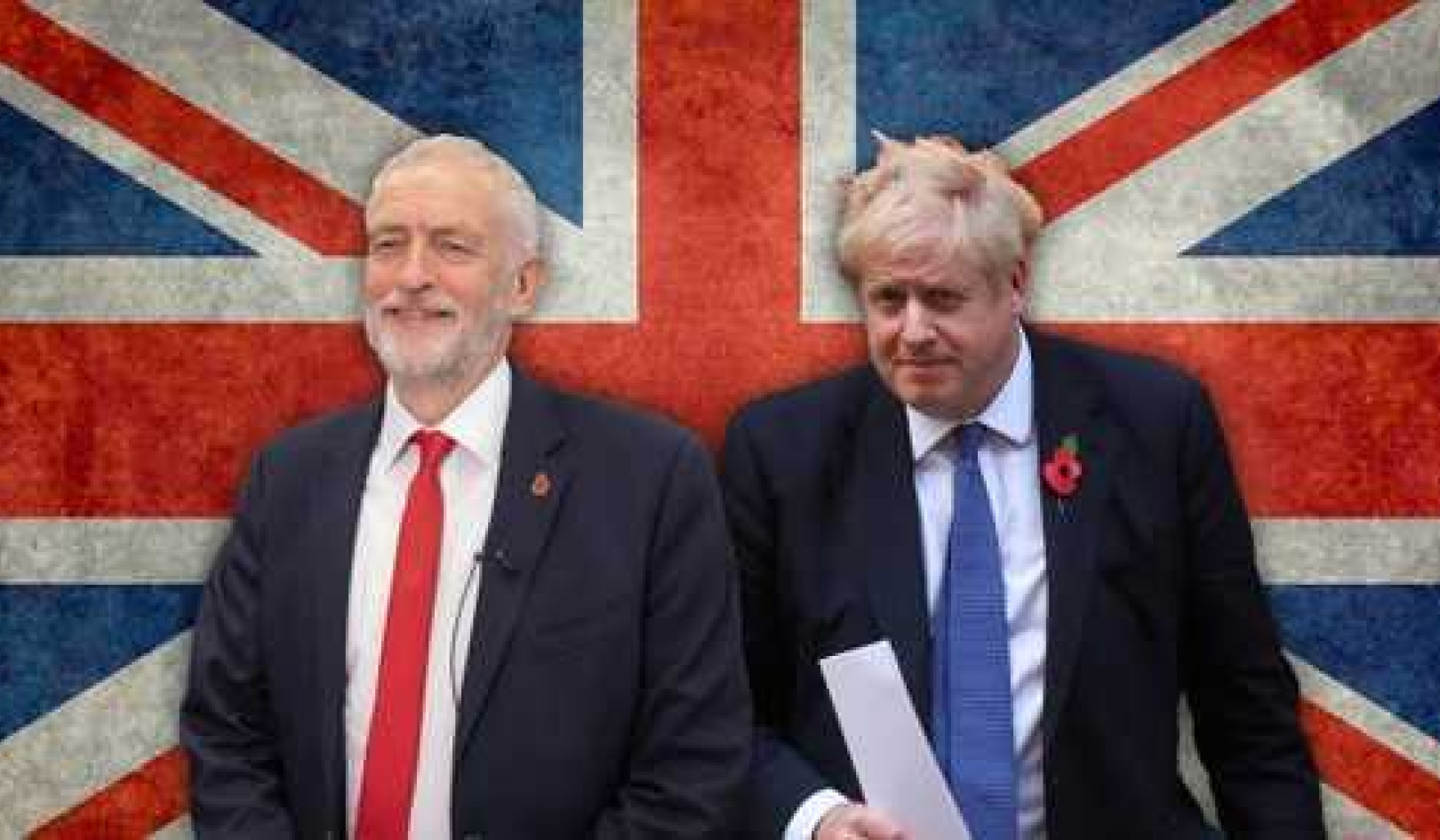
Humanity’s existential crisis can be resolved only when we the people stand united behind a vision of the world we truly want.
I just returned from a conference of influential decision-makers in China, where I presented on economics for an ecological civilization in the 21st century. China and the United States are very different, but when it comes to current threats and missed opportunities, we share a great deal more than we may realize.
The message I took to China will be familiar to readers of my column. It begins with recognizing the fundamental truth that humans are born of and nurtured by a living Earth. Forgetting that basic fact, we became captive to a deeply flawed economic theory that gained global prominence in the mid-20th century, is destroying Earth’s capacity to sustain life, and puts us on a path to self-extinction.
The countries that embraced the fallacies of 20th century economics now face an imperative to transform their culture, institutions, technology, and infrastructure to align with the eight principles of a 21st century economics outlined in my previous YES! column. Among other things, these principles call on us to abandon the goal of increasing GDP through consumption in favor of growing the well-being of people and Earth by supporting culturally rich, low-consumption lifestyles. Also, we must dismantle profit-maximizing corporations and convert the pieces to worker and community ownership. And we must redesign urban infrastructure to eliminate most dependence on automobiles.
I was eager to learn how these principles would be received in a country with a population more than four times that of the United States, devastating environmental problems, and the world’s most aggressive capitalist economy managed by a Communist Party that is nominally committed to an ecological civilization.
I find China especially interesting because of its government’s demonstrated ability to make big changes in the country’s direction with seemingly impossible speed, which we must now do as a species if we are to find our way to a viable future.
What I experienced during my brief visit was a deeply conflicted country with a political system that offers little room for open public debate, and which is stuck in an economic framework known in China as the Two Mountains theory. One “mountain” represents a commitment to a healthy environment of clean water and vibrant mountains lush with life. The other represents a commitment to maintaining one of the world’s highest GDP growth rates by catering to the interests of big business. An article by economic historian Richard Smith on China’s recent economic history underscored for me the deep and largely irreconcilable conflict between environmental health and maximizing GDP.
The conflict between growth and sustainability is all too frequently resolved in China by prioritizing the second mountain—with harsh consequences for human and environmental health. It seems closely connected to the conflict between the presumed commitment of China’s government to advancing the interests of workers, who struggle under harsh conditions and low pay, and an economy that churns out new billionaires at a rate of two per week.
My overall message in China boiled down to this: If your goal is to turn out billionaires, then concentrate on growing GDP by giving control of the economy to profit-maximizing corporations. If your goal is instead to increase the well-being of people and the Earth, then abandon GDP as a relevant indicator and focus instead on growing indicators of the outcomes you want while shifting power to people and community.
Seems like a rather straightforward choice for a government dedicated to an ecological civilization and workers’ well-being. Indeed, it would seem to be such for all governments that presume to represent the interests of their people. Given the extent to which my message challenged the official commitment to growing consumption to grow GDP, it seemed to get a remarkably positive hearing.
We assume that once elected, the new president will single-handedly wipe away the corruption.
I was still sorting out the contradictions when I returned home to the U.S. just in time to view the most recent round of debates in the contest to choose the Democratic Party’s 2020 presidential candidate. Both the Republican and Democratic parties are controlled by their corporate establishment wings, and our political debates are controlled by these same parties and by the corporate media. As the CNN moderators pounded the candidates with questions scripted from far-right talking points, I asked myself, “Could our politicians feel as constrained as most Chinese political figures do by the equivalent of a Two Mountains theory?”
Surely politicians like Bernie Sanders and Elizabeth Warren don’t sound constrained. But no one among the current candidates is suggesting that we abandon GDP as our primary measure of economic performance. While some have called to break up big tech giants, no one suggests we break up and restructure all big corporations and subordinate them to the communities in which they do business. And no one is suggesting restructuring urban areas so that most people have no need of cars.
Yet corporate media pundits dismiss “unserious” proposals, such as Medicare for All and increasing taxes on corporations, as too extremist to win against presumably mainstream Republicans, who want to eliminate all public health care and environmental regulations, continue to separate children from their parents at the border, block any meaningful reform of gun laws, and are working to make abortion illegal nationwide.
Our political system has become so deeply divided by a psychopathic fringe intent on growing their own fortunes that we can’t even assure all Americans have access to basic health care and a quality education, let alone an adequate means of living in return for honest labor. We are so caught up in debates about who is most oppressed and who most deserves what reparations that we don’t even ask how we might create a society free from oppression in which all people can have lives of material sufficiency and spiritual abundance on a beautiful and healthy Earth.
We act as if we believe that we need only figure out who among 20 candidates has all the best answers to the problems that confront us. We assume that once elected, the new president will single-handedly wipe away the corruption, restore the integrity and competence of government, secure the health of the environment, liberate the oppressed, and secure good jobs for all in the face of relentless opposition from powerful psychopaths protecting their interests.
We should be spending far less time debating the relative merits of 20 presidential candidates, and far more time bridging all the divides that separate us. We should be building an unstoppable movement of the world’s people that crosses all boundaries, united in a commitment to create a world that truly works for all. The deep transformation of culture, institutions, technology, and infrastructure on which our common future depends will be a difficult struggle and will require persistent and determined support from powerful social movements.
We the people will need to lead that discussion and demand that the politicians follow. We will need to frame the possibilities of that future and the path to its achievement through countless overlapping conversations in forums open to everyone.
Let us not be distracted from that cause by political debates structured by corporate media to divert our attention from proposals that might break the power of the corrupt system. It is a tall order, but so, too, at this moment is human survival.
About The Author
David Korten wrote this article for YES! Magazine. David is co-founder of YES! Magazine, president of the Living Economies Forum, a member of the Club of Rome, and the author of influential books, including “When Corporations Rule the World”and “Change the Story, Change the Future: A Living Economy for a Living Earth.” His work builds on lessons from the 21 years he and his wife, Fran, lived and worked in Africa, Asia, and Latin America on a quest to end global poverty. Follow him on Twitter@dkorten and Facebook.
This article originally appeared on YES! Magazine
Related Books
Drawdown: The Most Comprehensive Plan Ever Proposed to Reverse Global Warming
by Paul Hawken and Tom Steyer In the face of widespread fear and apathy, an international coalition of researchers, professionals, and scientists have come together to offer a set of realistic and bold solutions to climate change. One hundred techniques and practices are described here—some are well known; some you may have never heard of. They range from clean energy to educating girls in lower-income countries to land use practices that pull carbon out of the air. The solutions exist, are economically viable, and communities throughout the world are currently enacting them with skill and determination. Available On Amazon
In the face of widespread fear and apathy, an international coalition of researchers, professionals, and scientists have come together to offer a set of realistic and bold solutions to climate change. One hundred techniques and practices are described here—some are well known; some you may have never heard of. They range from clean energy to educating girls in lower-income countries to land use practices that pull carbon out of the air. The solutions exist, are economically viable, and communities throughout the world are currently enacting them with skill and determination. Available On Amazon
Designing Climate Solutions: A Policy Guide for Low-Carbon Energy
by Hal Harvey, Robbie Orvis, Jeffrey Rissman With the effects of climate change already upon us, the need to cut global greenhouse gas emissions is nothing less than urgent. It’s a daunting challenge, but the technologies and strategies to meet it exist today. A small set of energy policies, designed and implemented well, can put us on the path to a low carbon future. Energy systems are large and complex, so energy policy must be focused and cost-effective. One-size-fits-all approaches simply won’t get the job done. Policymakers need a clear, comprehensive resource that outlines the energy policies that will have the biggest impact on our climate future, and describes how to design these policies well. Available On Amazon
With the effects of climate change already upon us, the need to cut global greenhouse gas emissions is nothing less than urgent. It’s a daunting challenge, but the technologies and strategies to meet it exist today. A small set of energy policies, designed and implemented well, can put us on the path to a low carbon future. Energy systems are large and complex, so energy policy must be focused and cost-effective. One-size-fits-all approaches simply won’t get the job done. Policymakers need a clear, comprehensive resource that outlines the energy policies that will have the biggest impact on our climate future, and describes how to design these policies well. Available On Amazon
This Changes Everything: Capitalism vs. The Climate
by Naomi Klein In This Changes Everything Naomi Klein argues that climate change isn’t just another issue to be neatly filed between taxes and health care. It’s an alarm that calls us to fix an economic system that is already failing us in many ways. Klein meticulously builds the case for how massively reducing our greenhouse emissions is our best chance to simultaneously reduce gaping inequalities, re-imagine our broken democracies, and rebuild our gutted local economies. She exposes the ideological desperation of the climate-change deniers, the messianic delusions of the would-be geoengineers, and the tragic defeatism of too many mainstream green initiatives. And she demonstrates precisely why the market has not—and cannot—fix the climate crisis but will instead make things worse, with ever more extreme and ecologically damaging extraction methods, accompanied by rampant disaster capitalism. Available On Amazon
In This Changes Everything Naomi Klein argues that climate change isn’t just another issue to be neatly filed between taxes and health care. It’s an alarm that calls us to fix an economic system that is already failing us in many ways. Klein meticulously builds the case for how massively reducing our greenhouse emissions is our best chance to simultaneously reduce gaping inequalities, re-imagine our broken democracies, and rebuild our gutted local economies. She exposes the ideological desperation of the climate-change deniers, the messianic delusions of the would-be geoengineers, and the tragic defeatism of too many mainstream green initiatives. And she demonstrates precisely why the market has not—and cannot—fix the climate crisis but will instead make things worse, with ever more extreme and ecologically damaging extraction methods, accompanied by rampant disaster capitalism. Available On Amazon
From The Publisher:
Purchases on Amazon go to defray the cost of bringing you InnerSelf.comelf.com, MightyNatural.com, and ClimateImpactNews.com at no cost and without advertisers that track your browsing habits. Even if you click on a link but don't buy these selected products, anything else you buy in that same visit on Amazon pays us a small commission. There is no additional cost to you, so please contribute to the effort. You can also use this link to use to Amazon at any time so you can help support our efforts.


























